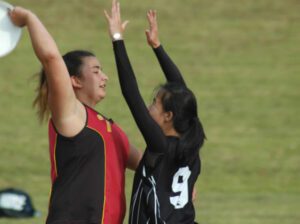One of the most common misconceptions amongst parents in the sports world is more playing equals more improvement. Although this may sound good in theory, the reality is that most kids (this also includes high school and college players) need time to recover from long seasons (both bodily and mentally).
This being stated, it does not mean putting the ball down or sitting in front of the television, iPad, smart phone, etc. What it does mean is athletes need to have an off-season and an in-season. Both seasons hold significant importance; however, the offseason tends to be focused more on sports performance goals /skill work and less on competitive play.
The offseason is the time for athletes to both rest their bodies and to recover from injuries, but it is most importantly a time for athletes to improve their athletic and mental performance.
This is best accomplished under the watchful eye of a personal trainer, sports-specific trainer or strength coach who is well versed in your child’s sport(s). Not all trainers are created equal – if a trainer does not have significant knowledge of the specifics of an athlete’s sport, they are not the best option to train an athlete–i.e. bodybuilding training is not the best style of training for a soccer player nor is it wise for a football player to be trained in the fashion a cross country runner is.
Parents or the athlete are perfectly within their right to ask a trainer what certifications they hold, what their sports-specific and training resume consists of, and most importantly, what goals the trainer has for the athlete and what means the trainer intends to go about achieving said goals.
During the offseason, the athlete needs to focus on sports-specific and sports performance goals (i.e. to be more explosive, to add muscle to gain a competitive advantage for the sport, to improve skill work they struggled with within their sport and to work on the mental aspects of the sport, etc.). This requires the athlete to dedicate a significant portion of their week in the weight room / performance training setting. Most of our athletes meet with us 2-3 times per week during the off-season (sessions lasting 1-1.5 hours) in which we track the progress of the athlete via weekly or bi-weekly progress reports.
For high school and college athletes, it’s wise to be in communication with your coach about what specific dynamics they see benefitting your overall performance. Good coaches want their athletes working in the off-season and getting better – any coach who discourages an athlete from making athletic improvements in performance as well as skill work improvements is questionable.
Some sports require athletes to play on various travel / AAU teams during the off-season. Although these teams can help players improve their skills and may serve to showcase a high school athlete’s abilities to college coaches – there are far too many of these teams selling empty promises and inadequate coaching/training. Parents and players are best served researching the credentials of a travel team’s coaches and their abilities to teach the fundamentals of the game. Travel teams at the youth level are not necessarily as important as skill development / fundamentals, and youth level players are better served participating in summer skills camps as opposed to travel teams.
If an athlete has shown potential and expresses a desire to play at the collegiate level, travel /AAU teams become more important.
Again, it’s important to find teams that are teaching the game, are showcasing their athletes to college coaches who match the level of talent on the team.
Just because the team has a popular name and is “sponsored” does not make it the best fit for your athlete or for you as a player. D3 athletes should not be going to tournaments where most coaches are D1 and vice a versa. Good travel/AAU organizations are realistic with what type of talent they have on their roster and what college coaches are best served seeing said players.
Andrew Kurzawski, BA, M.Div, NETA CPT is the founder of Gym Rat Performance Training where he functions as a strength & conditioning coach and basketball skills trainer. He is a collegiate basketball / strength and conditioning coach at Penn State University Beaver. He holds a NETA (National Exercise Training Association) Certified Personal Training certification and has over 10 years of experience working with elite level athletes at the high school, college (NAIA, USCAA, NCAA D1, D2, D3) and professional levels.
CoachUp is the safest and easiest way to find a coach for personalized training. With our 100% money-back guarantee and vetted coaches, anyone can achieve their full athletic potential. Find your perfect coach today and become the athlete you want to be!
How useful was this post?
Click on a star to rate it!
Average rating 4.5 / 5. Vote count: 2
No votes so far! Be the first to rate this post.




